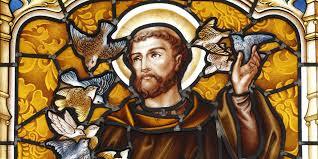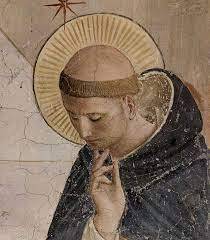Francis of Assisi and the Mendicant Orders
 Episode 14 St Francis and the Mendicant Orders
Episode 14 St Francis and the Mendicant Orders
1215: Years That Changed History
Dr Dorsey Armstrong (2019)
Film Review
The first Christian hermits and monastic orders appeared in the third century AD. Two hundred years later, the first major monastic order, the Benedictines. Because the monks were expected to be self-sufficient, they engaged in agriculture, collected large tracts of land, became fantastically wealth and involved themselves in local politics.
In 1098, the Cistercian order was started in reaction to the Benedictines’ worldliness. Adopting a rule of poverty, the Cistercians deliberately located their monasteries in rural areas to help their monks resist the temptation to involve themselves in politics. They, too, became extremely wealthy owing to the high quality wool they produced and their involvement.
In 1209, Francis of Assisi, feeling a need for representatives of God to work directly in the community helping people, founded (with the pope’s permission)* the Friars Minor, the first of several mendicant orders.
Born in Assisi (Italy) in 1181, Francis was the son of a cloth merchant who became caught up in an insurrection against the ruling nobility. After he was taken captive at the battle of Perusia, it took over a year for his family to ransom him.
Francis and the other monks in his order deliberately reached out to lepers and other shunned minorities. They begged for alms (mainly food because they weren’t allowed to accept money) and at time building materials to help restore church building.
Thanks to Francis’s meeting with the Sultan of Egypt, and the Franciscans, they are the only Catholic order with an an ongoing presence in the Mideast.
Owing to his love of animals, St Francis became the patron saint of pets and wild animals.
In 1216, the Dominican order was founded. Stressing teaching and education, they played an important role in founding Oxford and Cambridge.
*The pope’s permission was needed for mendicant monks to shave their head in a tonsure. Free travel between towns and villages was illegal in the 13th century without permission from a feudal lord or a tonsure identifying the person a a monk.
The Most Revolutionary Act
- Stuart Jeanne Bramhall's profile
- 11 followers




